Can You Take Xanax Before A Tattoo? Yes, you can take Xanax before getting a tattoo, but it’s crucial to understand the implications and precautions. This comprehensive guide from tattooat.com explores everything you need to know about managing anxiety around tattoos, ensuring a safe and positive tattooing journey with body art. Dive in to discover how to navigate pre-tattoo jitters and enhance your overall tattooing experience and tattoo anxiety.
1. Understanding Tattoo Anxiety
Tattoo anxiety is a common experience, with many people feeling apprehensive about their upcoming tattoo appointment. It is important to understand and address this anxiety to ensure a positive experience.
Many individuals experience anxiety before getting a tattoo. Understanding why you feel anxious is the first step to managing it. This might involve fears about pain, needles, the permanence of the tattoo, or concerns about how others will perceive your new ink. By identifying the root cause of your anxiety, you can develop strategies to address each specific concern, turning a potentially stressful experience into an exciting and empowering one. Tattooat.com offers support and resources to help you navigate these feelings and approach your tattoo appointment with confidence.
1.1. Common Causes of Anxiety Before a Tattoo
Anxiety before a tattoo can stem from several factors. Identifying these triggers helps in managing your fears effectively.
Many factors can contribute to pre-tattoo anxiety, with pain being a primary concern for many. The thought of needles piercing the skin can be daunting, and the anticipation of discomfort can heighten anxiety levels. Permanence is another significant source of worry. Unlike other forms of self-expression, tattoos are lasting, and the commitment can be overwhelming. Social judgment also plays a role, as people may worry about how family, friends, or colleagues will react to their new tattoo. The financial aspect, including the cost of the tattoo and potential touch-ups, can add to the stress. Concerns about the artist’s skill, hygiene standards, and the overall safety of the procedure also contribute to anxiety. Addressing these concerns with reliable information and support from tattooat.com can help alleviate fears and ensure a positive experience.
1.2. How to Identify Your Tattoo Stress Factor
Pinpointing the source of your anxiety is crucial. Ask yourself what specifically worries you about the tattoo process.
Identifying your specific tattoo stress factors involves introspection and honest self-assessment. Start by asking yourself why you’re feeling anxious. Is it the pain, the permanence, social judgment, the cost, or fear of needles? Write down all your concerns, no matter how small they seem. Once you have a list, prioritize them based on their intensity. Research each concern to gather accurate information. Understanding what to expect regarding pain levels, aftercare, and the tattoo process can reduce uncertainty and fear. Discuss your worries with your tattoo artist, who can offer reassurance and address any misconceptions. Talking to friends or family members who have tattoos can also provide valuable insights and support. By systematically identifying and addressing your stress factors, you can approach your tattoo appointment with greater confidence and peace of mind. Tattooat.com provides a platform for information and support, helping you navigate these concerns effectively.
2. Can You Take Xanax Before a Tattoo?
Taking Xanax before a tattoo is a decision that requires careful consideration and professional guidance.
Using Xanax before getting a tattoo is a serious decision that should only be made in consultation with a healthcare professional. While Xanax, an anti-anxiety medication, can help alleviate pre-tattoo jitters, it’s essential to understand the potential risks and interactions. According to research from Portland State University’s Art Department, in July 2025, taking Xanax can cause drowsiness, dizziness, and impaired coordination, which may affect your ability to sit still during the tattooing process. Additionally, it can interact with other medications or substances, leading to adverse effects. Furthermore, it’s crucial to ensure that Xanax is legal and permissible in the state where you’re getting tattooed, as regulations vary. Always prioritize safety and consult with your doctor or a qualified medical professional before taking Xanax or any other medication before your tattoo appointment. This ensures that you’re making an informed decision that safeguards your health and well-being.
2.1. Understanding Xanax and Its Effects
Xanax is a prescription medication used to treat anxiety and panic disorders. It’s essential to know its effects on your body.
Xanax, also known as alprazolam, is a prescription medication primarily used to manage anxiety and panic disorders. It belongs to a class of drugs called benzodiazepines, which work by enhancing the effects of a natural chemical in the brain called gamma-aminobutyric acid (GABA). GABA reduces the level of excitability in the brain, resulting in a calming effect. Common side effects of Xanax include drowsiness, dizziness, impaired coordination, and difficulty concentrating. In some cases, it can also cause memory problems, irritability, and depression. It’s crucial to take Xanax exactly as prescribed by your healthcare provider and to avoid combining it with alcohol or other central nervous system depressants, as this can increase the risk of severe side effects. Long-term use of Xanax can lead to dependence and withdrawal symptoms if the medication is stopped abruptly. Therefore, it’s essential to consult with a doctor before starting or stopping Xanax, especially in the context of getting a tattoo, to ensure your safety and well-being.
2.2. Potential Risks of Taking Xanax Before a Tattoo
There are several risks associated with taking Xanax before a tattoo, including increased bleeding and interaction with other substances.
Taking Xanax before getting a tattoo poses several potential risks that individuals should carefully consider. One significant concern is that Xanax can thin the blood, increasing the likelihood of bleeding during the tattooing process. This can not only make it harder for the artist to work but also affect the quality and longevity of the tattoo. Additionally, Xanax can interact with other substances, such as alcohol or certain medications, leading to adverse effects like increased drowsiness or respiratory depression. It’s also important to be aware that Xanax can impair judgment and coordination, which can make it difficult to sit still during the tattoo session, potentially affecting the outcome of the artwork. Furthermore, if you’re not accustomed to taking Xanax, you may experience unexpected side effects that can heighten anxiety rather than alleviate it. Given these risks, it’s crucial to consult with a healthcare professional before taking Xanax or any other medication before your tattoo appointment. They can assess your individual health profile and provide personalized guidance to ensure your safety and well-being.
2.3. Legal and Permissibility Considerations
Verify the legality of using Xanax in the state where you’re getting the tattoo, as regulations can vary.
Legal and permissibility considerations are paramount when contemplating the use of Xanax before getting a tattoo. Regulations regarding prescription medications like Xanax can vary significantly from state to state. It’s essential to ensure that you have a valid prescription for Xanax and that its use is permissible in the specific location where you plan to get your tattoo. Some states may have stricter laws regarding controlled substances, and using Xanax without proper authorization could lead to legal consequences. Additionally, it’s crucial to consider the policies of the tattoo studio itself. Some establishments may have specific rules regarding the use of medications before or during tattoo appointments, and violating these policies could result in denial of service. Therefore, before taking Xanax or any other medication, it’s advisable to research the local laws and regulations, as well as consult with the tattoo studio to ensure compliance and avoid any potential legal or procedural issues. This proactive approach demonstrates responsibility and respect for the law and the studio’s policies, ensuring a smooth and lawful tattooing experience.
3. Safer Alternatives to Manage Tattoo Anxiety
Explore alternative methods to manage anxiety without resorting to prescription medications like Xanax.
There are numerous safer alternatives to manage tattoo anxiety without relying on prescription medications like Xanax. One effective approach is practicing relaxation techniques, such as deep breathing exercises, meditation, or mindfulness. These techniques can help calm the nervous system and reduce feelings of stress and unease. Another option is to engage in physical activity before your appointment, as exercise releases endorphins, which have mood-boosting effects. Creating a soothing environment during the tattoo session can also be beneficial. Listening to calming music, bringing a supportive friend, or using aromatherapy can help create a more relaxed atmosphere. Additionally, open communication with your tattoo artist is essential. Discussing your concerns and fears with them can help alleviate anxiety and build trust. They may also have suggestions for coping strategies or be willing to adjust their approach to make you feel more comfortable. By exploring these safer alternatives, you can effectively manage tattoo anxiety while prioritizing your health and well-being. Tattooat.com offers resources and tips on these alternative methods, empowering you to approach your tattoo appointment with confidence and peace of mind.
3.1. Relaxation Techniques
Techniques such as deep breathing, meditation, and mindfulness can help calm your nerves.
Relaxation techniques are invaluable tools for managing tattoo anxiety and promoting a sense of calm and well-being. Deep breathing exercises, such as diaphragmatic breathing, involve taking slow, deep breaths from the abdomen, which can help lower heart rate and reduce feelings of stress. Meditation, whether guided or practiced independently, can help quiet the mind and promote relaxation by focusing on the present moment. Mindfulness involves paying attention to your thoughts, feelings, and sensations without judgment, allowing you to observe anxiety without getting carried away by it. These techniques can be practiced anywhere, anytime, making them convenient and accessible for managing anxiety in the lead-up to your tattoo appointment. Regular practice can enhance their effectiveness, helping you develop a greater sense of control over your anxiety levels. Tattooat.com provides guided meditations and breathing exercises specifically tailored to managing tattoo anxiety, offering a comprehensive approach to relaxation and stress reduction.
3.2. Natural Remedies
Herbal teas and supplements may offer calming effects. Consult with a healthcare provider before trying any new remedies.
Natural remedies can offer gentle yet effective support for managing tattoo anxiety. Herbal teas like chamomile, lavender, and valerian have long been used for their calming properties. These teas contain compounds that can help reduce stress and promote relaxation. Additionally, certain supplements, such as L-theanine and magnesium, may have anxiety-reducing effects. L-theanine, found in green tea, promotes relaxation without causing drowsiness, while magnesium plays a role in regulating mood and stress response. However, it’s crucial to consult with a healthcare provider before trying any new natural remedies, especially if you have underlying health conditions or are taking medications. They can assess potential interactions and ensure that the remedies are safe and appropriate for you. While natural remedies can be a valuable addition to your anxiety management toolkit, they should not replace professional medical advice or treatment. Tattooat.com provides information on natural remedies for anxiety, empowering you to make informed decisions about your health and well-being.
3.3. Distraction Methods
Engage in activities that divert your attention during the tattoo process, such as listening to music or watching a movie.
Distraction methods can be incredibly helpful for managing anxiety during the tattoo process by diverting your attention away from discomfort and unease. Listening to music, whether it’s your favorite playlist or a calming soundtrack, can create a more relaxed atmosphere and help you focus on something other than the tattooing sensation. Watching a movie or TV show can also provide a welcome distraction, immersing you in a different world and making the time pass more quickly. Some individuals find it helpful to engage in conversation with their tattoo artist or bring a supportive friend along to chat with during the session. Additionally, focusing on a specific object or visualizing a peaceful scene can help redirect your thoughts and reduce anxiety. Experiment with different distraction techniques to find what works best for you. Tattooat.com offers curated playlists and movie recommendations specifically designed to help you relax and stay distracted during your tattoo appointment.
4. Preparing for Your Tattoo Appointment
Proper preparation is key to minimizing anxiety and ensuring a smooth tattoo experience.
Proper preparation is essential for minimizing anxiety and ensuring a smooth, positive tattoo experience. Start by doing thorough research to find a reputable tattoo artist and studio that you trust. Read reviews, check portfolios, and visit the studio to assess its cleanliness and professionalism. Schedule a consultation with the artist to discuss your design ideas, ask questions, and address any concerns you may have. On the day of your appointment, get plenty of rest, eat a nutritious meal, and avoid alcohol or caffeine, as these can increase anxiety. Dress comfortably and bring distractions such as music, a book, or a supportive friend. Communicate openly with your artist throughout the session, letting them know if you need to take breaks or adjust your position. By taking these steps, you can create a more relaxed and controlled environment, reducing anxiety and promoting a successful tattoo experience. Tattooat.com offers comprehensive guides and checklists to help you prepare for your tattoo appointment, ensuring that you feel confident and informed every step of the way.
4.1. Choosing the Right Tattoo Artist
Select an artist who is not only skilled but also makes you feel comfortable and understood.
Choosing the right tattoo artist is a crucial step in ensuring a positive and comfortable tattoo experience. Look for an artist who is not only skilled in their craft but also possesses excellent communication and interpersonal skills. Take the time to research different artists, review their portfolios, and read client testimonials to get a sense of their expertise and approach. Schedule consultations with a few potential artists to discuss your design ideas, ask questions, and assess their personality and demeanor. Pay attention to how well they listen to your concerns, address your questions, and make you feel at ease. A good tattoo artist will take the time to understand your vision, offer helpful suggestions, and create a collaborative and supportive environment. Trust your instincts and choose an artist with whom you feel a genuine connection and a sense of confidence in their abilities. Tattooat.com provides a directory of talented and reputable tattoo artists, along with tips and advice on how to find the perfect match for your individual needs and preferences.
4.2. Pre-Appointment Consultation
Use the consultation to discuss your anxiety and concerns with the artist.
A pre-appointment consultation is an invaluable opportunity to discuss your anxiety and concerns with your tattoo artist, fostering trust and ensuring a smoother tattoo experience. During the consultation, be open and honest about your fears and anxieties, whether they relate to pain, needles, the permanence of the tattoo, or any other aspect of the process. Your artist can provide reassurance, answer your questions, and offer practical advice for managing your anxiety. They may also be able to adjust their approach to accommodate your needs, such as using numbing cream, taking frequent breaks, or playing calming music. Use the consultation to get a sense of the artist’s personality and communication style. Choose an artist who is patient, understanding, and willing to work with you to create a comfortable and supportive environment. Tattooat.com offers resources and tips on how to make the most of your pre-appointment consultation, empowering you to address your anxiety and build a strong rapport with your tattoo artist.
4.3. What to Avoid Before Your Appointment
Avoid alcohol, caffeine, and certain medications that can increase anxiety or thin your blood.
To ensure a smooth and comfortable tattoo experience, it’s important to avoid certain substances and activities that can exacerbate anxiety or interfere with the tattooing process. Alcohol and caffeine can both increase anxiety levels and make you more sensitive to pain, so it’s best to avoid them in the days leading up to your appointment. Certain medications, such as blood thinners, can increase bleeding during the tattoo session, so consult with your doctor about whether it’s safe to temporarily discontinue them. Additionally, avoid sunbathing or tanning, as sunburned or irritated skin can make tattooing more painful and difficult. Get plenty of rest, eat a nutritious meal, and stay hydrated in the days before your appointment to ensure that your body is in optimal condition. By taking these precautions, you can minimize anxiety, reduce discomfort, and promote a successful tattoo experience. Tattooat.com provides comprehensive guidelines on what to avoid before your tattoo appointment, helping you prepare both physically and mentally for your session.
5. During Your Tattoo Session
Managing anxiety during the tattoo session involves communication, distraction, and relaxation techniques.
Effectively managing anxiety during your tattoo session involves a combination of clear communication, engaging distraction methods, and consistent relaxation techniques. Begin by establishing open communication with your tattoo artist, ensuring they are aware of your anxiety and preferences. Feel free to request breaks, adjustments in position, or changes in the music to enhance your comfort. Employ distraction techniques such as listening to music, watching a movie, or engaging in conversation with a friend to divert your attention from any discomfort. Practice relaxation techniques like deep breathing exercises, progressive muscle relaxation, or visualization to calm your nervous system and reduce tension. Remember to focus on your breath, release any tension in your muscles, and visualize a peaceful scene to promote relaxation. By integrating these strategies, you can effectively manage anxiety during your tattoo session, fostering a more relaxed and enjoyable experience. Tattooat.com provides resources and guidance on managing anxiety during your tattoo session, empowering you to navigate the process with confidence and ease.
5.1. Communicating with Your Artist
Open communication with your tattoo artist is essential for a comfortable experience.
Open and honest communication with your tattoo artist is paramount for ensuring a comfortable and positive experience. Express your anxieties and concerns upfront, whether they relate to pain, the placement of the tattoo, or any other aspect of the process. Your artist can provide reassurance, answer your questions, and adjust their approach to accommodate your needs. Don’t hesitate to speak up if you’re feeling uncomfortable or need to take a break. A good tattoo artist will prioritize your comfort and well-being and will be willing to work with you to create a safe and supportive environment. Use clear and specific language when communicating your preferences, and listen attentively to your artist’s instructions and recommendations. Remember that tattooing is a collaborative process, and effective communication is key to achieving a successful outcome. Tattooat.com offers tips and advice on how to communicate effectively with your tattoo artist, empowering you to advocate for your needs and ensure a satisfying tattoo experience.
5.2. Managing Pain
Discuss pain management options with your artist, such as numbing creams.
Discussing pain management options with your tattoo artist is essential for ensuring a more comfortable experience. Numbing creams, containing ingredients like lidocaine, can be applied to the skin before the tattoo session to reduce pain and discomfort. Ask your artist about their experience with numbing creams and whether they recommend them for your particular tattoo. Keep in mind that numbing creams may not eliminate pain entirely, but they can significantly reduce its intensity. Additionally, be aware that some individuals may experience allergic reactions to numbing creams, so it’s important to do a patch test beforehand. Other pain management strategies include taking over-the-counter pain relievers, such as ibuprofen or acetaminophen, before your appointment, and practicing relaxation techniques, such as deep breathing or meditation, during the session. By exploring these options with your artist, you can develop a pain management plan that works best for you. Tattooat.com provides information on pain management techniques for tattoos, empowering you to make informed decisions about your comfort and well-being.
5.3. Taking Breaks
Don’t hesitate to request breaks during the session if you feel overwhelmed.
Taking breaks during your tattoo session is crucial for managing anxiety and ensuring your overall comfort. If you start to feel overwhelmed, anxious, or uncomfortable, don’t hesitate to request a break from your tattoo artist. Use the break to stretch your legs, get some fresh air, drink water, or practice relaxation techniques. Communicate openly with your artist about how you’re feeling and let them know when you’re ready to resume the session. Short, frequent breaks can help you stay calm and focused, preventing anxiety from escalating. Remember that tattooing is a collaborative process, and your artist wants you to have a positive experience. Don’t feel pressured to endure discomfort or anxiety without taking a break. Tattooat.com emphasizes the importance of self-care during tattoo sessions, encouraging individuals to prioritize their well-being and advocate for their needs.
6. After Your Tattoo Session
Post-tattoo anxiety is rare but can occur. Addressing it promptly is essential for your well-being.
While post-tattoo anxiety is relatively rare, it can occur and should be addressed promptly to ensure your well-being. If you find yourself feeling anxious or regretful after getting a tattoo, it’s important to explore the underlying causes of your anxiety. Are you concerned about the appearance of the tattoo, the healing process, or the reactions of others? Once you’ve identified the source of your anxiety, you can take steps to address it. If you’re unhappy with the tattoo, consider consulting with another artist about possible modifications or cover-up options. If you’re worried about the healing process, follow your artist’s aftercare instructions carefully and seek medical attention if you notice any signs of infection. If you’re concerned about the reactions of others, remember that your body is your own, and you have the right to express yourself through body art. Focus on your own feelings of empowerment and self-expression, and surround yourself with supportive friends and family members. Tattooat.com offers resources and support for managing post-tattoo anxiety, empowering you to navigate any challenges and embrace your new ink with confidence.
6.1. Addressing Regret or Dissatisfaction
If you’re unhappy with your tattoo, explore options like touch-ups or removal.
If you find yourself experiencing regret or dissatisfaction after getting a tattoo, it’s important to address these feelings proactively and explore available options for resolution. Start by assessing the specific reasons for your dissatisfaction. Are you unhappy with the design, the placement, the execution, or the overall appearance of the tattoo? Once you’ve identified the issues, consider consulting with your tattoo artist or another reputable artist about possible touch-ups or modifications. In some cases, minor adjustments can significantly improve the appearance of the tattoo and alleviate your concerns. If touch-ups are not feasible or if you’re still unhappy with the tattoo, explore the option of tattoo removal. Laser tattoo removal is a common and effective method for gradually fading or eliminating unwanted tattoos. Research different removal options and consult with a qualified dermatologist or tattoo removal specialist to determine the best course of action for your specific situation. Tattooat.com provides information and resources on tattoo regret and removal, empowering you to make informed decisions about your body and your well-being.
6.2. Proper Aftercare
Following aftercare instructions can prevent complications and ease anxiety.
Following proper aftercare instructions is crucial for preventing complications and easing anxiety in the days and weeks following your tattoo session. Your tattoo artist will provide you with specific aftercare guidelines, which may include instructions on cleaning, moisturizing, and protecting your new tattoo. Follow these instructions diligently to promote healing and prevent infection. Keep the tattoo clean by gently washing it with mild soap and water, and pat it dry with a clean towel. Apply a thin layer of fragrance-free, hypoallergenic moisturizer to keep the skin hydrated. Avoid scratching or picking at the tattoo, as this can damage the skin and increase the risk of infection. Protect the tattoo from sunlight by wearing loose-fitting clothing or applying sunscreen. If you notice any signs of infection, such as redness, swelling, or pus, seek medical attention promptly. By following proper aftercare instructions, you can minimize complications and ensure that your tattoo heals properly, reducing anxiety and promoting a positive outcome. Tattooat.com offers comprehensive guides on tattoo aftercare, empowering you to care for your new ink with confidence.
6.3. Seeking Support
Talk to friends, family, or a therapist if you’re struggling with post-tattoo anxiety.
Seeking support is essential if you’re struggling with post-tattoo anxiety, as it can provide you with valuable emotional support and guidance. Talk to trusted friends and family members about your feelings and concerns. Sharing your experiences with others can help you feel less alone and gain new perspectives. If your anxiety is persistent or overwhelming, consider seeking professional help from a therapist or counselor. A therapist can provide you with tools and strategies for managing your anxiety, as well as a safe and supportive space to explore your emotions. Additionally, consider joining a support group for individuals with tattoos. Sharing your experiences with others who have tattoos can help you feel validated and understood. Remember that seeking support is a sign of strength, not weakness, and it’s an important step in taking care of your mental and emotional well-being. Tattooat.com provides resources and links to support services for individuals struggling with tattoo-related anxiety, empowering you to seek the help you need and embrace your new ink with confidence.
7. Real-Life Stories
Hearing from others who have experienced tattoo anxiety can be reassuring.
Hearing real-life stories from others who have experienced tattoo anxiety can be incredibly reassuring and validating. Many individuals feel a sense of relief when they realize that their fears and anxieties are not unique and that others have successfully navigated similar challenges. Reading or listening to personal accounts of tattoo anxiety can provide practical tips and strategies for managing your own fears, as well as a sense of hope and encouragement. These stories can also help to normalize the experience of anxiety surrounding tattoos and reduce feelings of shame or embarrassment. Whether it’s a friend sharing their own experiences or reading testimonials online, connecting with others who have been through similar situations can be a powerful source of support and inspiration. Tattooat.com features real-life stories from individuals who have experienced tattoo anxiety, offering a diverse range of perspectives and experiences to help you feel less alone and more empowered.
7.1. Personal Experiences with Xanax and Tattoos
Some individuals share their experiences of using Xanax to manage tattoo anxiety, but these are not endorsements.
Some individuals share their personal experiences of using Xanax to manage tattoo anxiety, but it’s important to note that these anecdotes are not endorsements or recommendations. While some people may find Xanax helpful in reducing anxiety, it’s essential to consider the potential risks and side effects, as well as the legal and permissibility considerations. These personal stories can provide insights into the potential benefits and drawbacks of using Xanax, but they should not replace professional medical advice. Always consult with a healthcare provider before taking Xanax or any other medication, and be sure to weigh the potential benefits against the risks. Additionally, remember that there are safer alternatives to managing tattoo anxiety, such as relaxation techniques, natural remedies, and distraction methods. Tattooat.com provides a platform for sharing personal experiences with tattoo anxiety, but it also emphasizes the importance of seeking professional guidance and making informed decisions about your health and well-being.
7.2. Success Stories of Overcoming Tattoo Anxiety
Many people have successfully overcome tattoo anxiety using various coping strategies.
Many individuals have successfully overcome tattoo anxiety using a variety of coping strategies, demonstrating that it is possible to manage your fears and enjoy the experience of getting a tattoo. These success stories often highlight the importance of thorough preparation, open communication with your tattoo artist, and the use of relaxation techniques and distraction methods. Some people find it helpful to bring a supportive friend along to their appointment, while others focus on visualizing the finished tattoo or listening to calming music. The key to overcoming tattoo anxiety is to find the strategies that work best for you and to approach the experience with a sense of self-compassion and empowerment. Remember that it’s normal to feel anxious, and that you have the inner resources to manage your fears and create a positive outcome. Tattooat.com shares success stories of individuals who have overcome tattoo anxiety, providing inspiration and practical tips for managing your own fears and embracing the experience of getting a tattoo.
8. FAQs About Xanax and Tattoos
Addressing common questions about taking Xanax before getting a tattoo.
Addressing frequently asked questions about taking Xanax before getting a tattoo is essential for providing individuals with accurate and reliable information. Here are some common questions and answers:
- Is it safe to take Xanax before getting a tattoo?
- Taking Xanax before a tattoo should only be done under the guidance of a healthcare provider due to potential risks and side effects.
- Can Xanax thin my blood and cause excessive bleeding during the tattoo session?
- Yes, Xanax can thin the blood, potentially leading to increased bleeding during the tattoo session.
- Are there any legal issues associated with taking Xanax before getting a tattoo?
- It’s important to ensure that you have a valid prescription for Xanax and that its use is permissible in the state where you’re getting tattooed.
- What are some safer alternatives to taking Xanax for tattoo anxiety?
- Safer alternatives include relaxation techniques, natural remedies, and distraction methods.
- How can I prepare for my tattoo appointment to minimize anxiety?
- Proper preparation includes choosing the right artist, attending a pre-appointment consultation, and avoiding alcohol and caffeine.
- What should I do if I start feeling anxious during my tattoo session?
- Communicate with your artist, manage pain, and take breaks as needed.
- Is it normal to experience regret or dissatisfaction after getting a tattoo?
- Post-tattoo anxiety is rare but can occur. Address it promptly by exploring options like touch-ups or removal.
- What aftercare steps can help ease anxiety after getting a tattoo?
- Following aftercare instructions can prevent complications and ease anxiety.
- Where can I find support if I’m struggling with post-tattoo anxiety?
- Talk to friends, family, or a therapist for support.
- Can you get a tattoo while on antidepressants?
- Consult your doctor and tattoo artist before getting a tattoo while on antidepressants.
These FAQs provide valuable information for individuals considering taking Xanax before getting a tattoo, as well as safer alternatives and strategies for managing anxiety.
8.1. Will Xanax Affect the Tattooing Process?
Xanax can cause drowsiness and impair coordination, potentially affecting your ability to sit still.
Xanax can indeed affect the tattooing process due to its potential to cause drowsiness and impair coordination. These side effects can make it challenging to sit still for extended periods, which is essential for the tattoo artist to create a precise and high-quality design. Additionally, Xanax can alter your perception and reaction to pain, making it difficult to communicate effectively with your artist about your comfort level. It’s crucial to consider these potential effects and discuss them with your healthcare provider and tattoo artist before taking Xanax before your appointment. They can help you weigh the risks and benefits and determine whether it’s the right choice for you. Tattooat.com provides information on the potential effects of medications on the tattooing process, empowering you to make informed decisions about your health and well-being.
8.2. Can I Combine Xanax with Other Anxiety-Relief Methods?
Combining Xanax with other methods should be done cautiously and under medical supervision.
Combining Xanax with other anxiety-relief methods should be approached with caution and under the supervision of a healthcare professional. While it may seem tempting to combine multiple strategies for managing anxiety, doing so without proper guidance can lead to adverse effects. Xanax can interact with other medications, supplements, and even natural remedies, potentially increasing the risk of side effects or reducing the effectiveness of the treatments. Additionally, combining Xanax with other sedatives or central nervous system depressants can lead to dangerous respiratory depression or overdose. It’s crucial to consult with your doctor or a qualified healthcare provider before combining Xanax with any other anxiety-relief methods, including herbal remedies, relaxation techniques, or over-the-counter medications. They can assess your individual health profile and provide personalized guidance to ensure your safety and well-being. Tattooat.com emphasizes the importance of seeking professional medical advice before combining medications or treatments for anxiety, empowering you to make informed decisions about your health and safety.
9. Conclusion
Managing tattoo anxiety is possible with the right preparation, strategies, and support.
Managing tattoo anxiety is indeed possible with the right preparation, strategies, and support. By taking proactive steps to address your fears and concerns, you can transform a potentially stressful experience into a positive and empowering one. Start by identifying the root causes of your anxiety, whether it’s fear of pain, needles, permanence, or social judgment. Then, explore various coping strategies, such as relaxation techniques, natural remedies, and distraction methods. Choose a tattoo artist who is not only skilled but also makes you feel comfortable and understood. Communicate openly with your artist about your anxieties and preferences, and don’t hesitate to request breaks or adjustments during the session. Finally, remember to practice self-compassion and focus on the positive aspects of getting a tattoo, such as self-expression, empowerment, and joining a community of like-minded individuals. With the right preparation and support, you can overcome tattoo anxiety and enjoy the experience of adorning your body with meaningful art. Tattooat.com is your go-to resource for inspiration, guidance, and support on your tattoo journey.
Are you ready to explore stunning tattoo designs, find talented artists, and learn everything you need to know about tattoos? Visit tattooat.com today and start your journey to self-expression and body art confidently. Explore tattoo culture today.
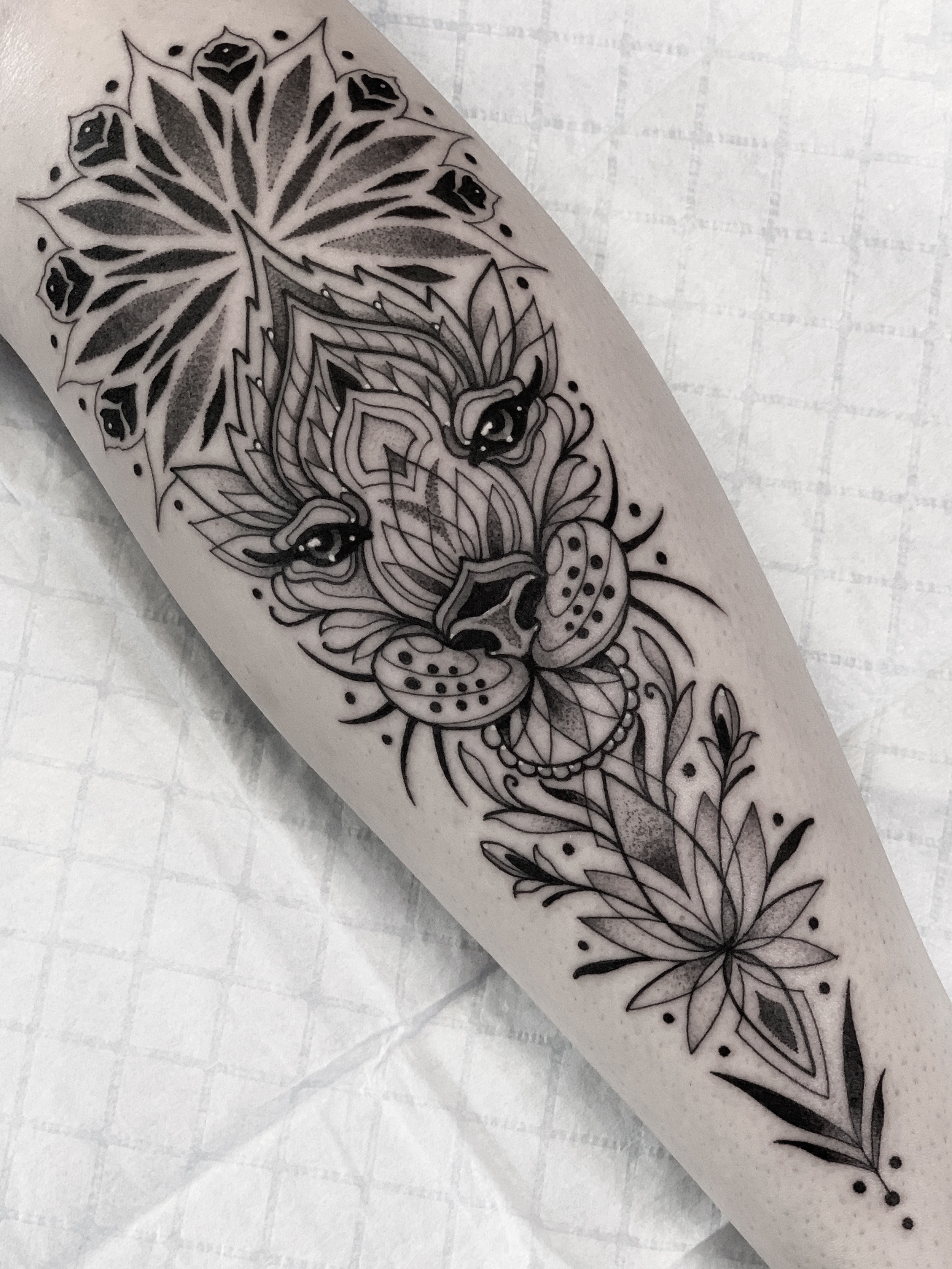 Ornamental big cat geometric tattoo by Tommy Sisneros
Ornamental big cat geometric tattoo by Tommy Sisneros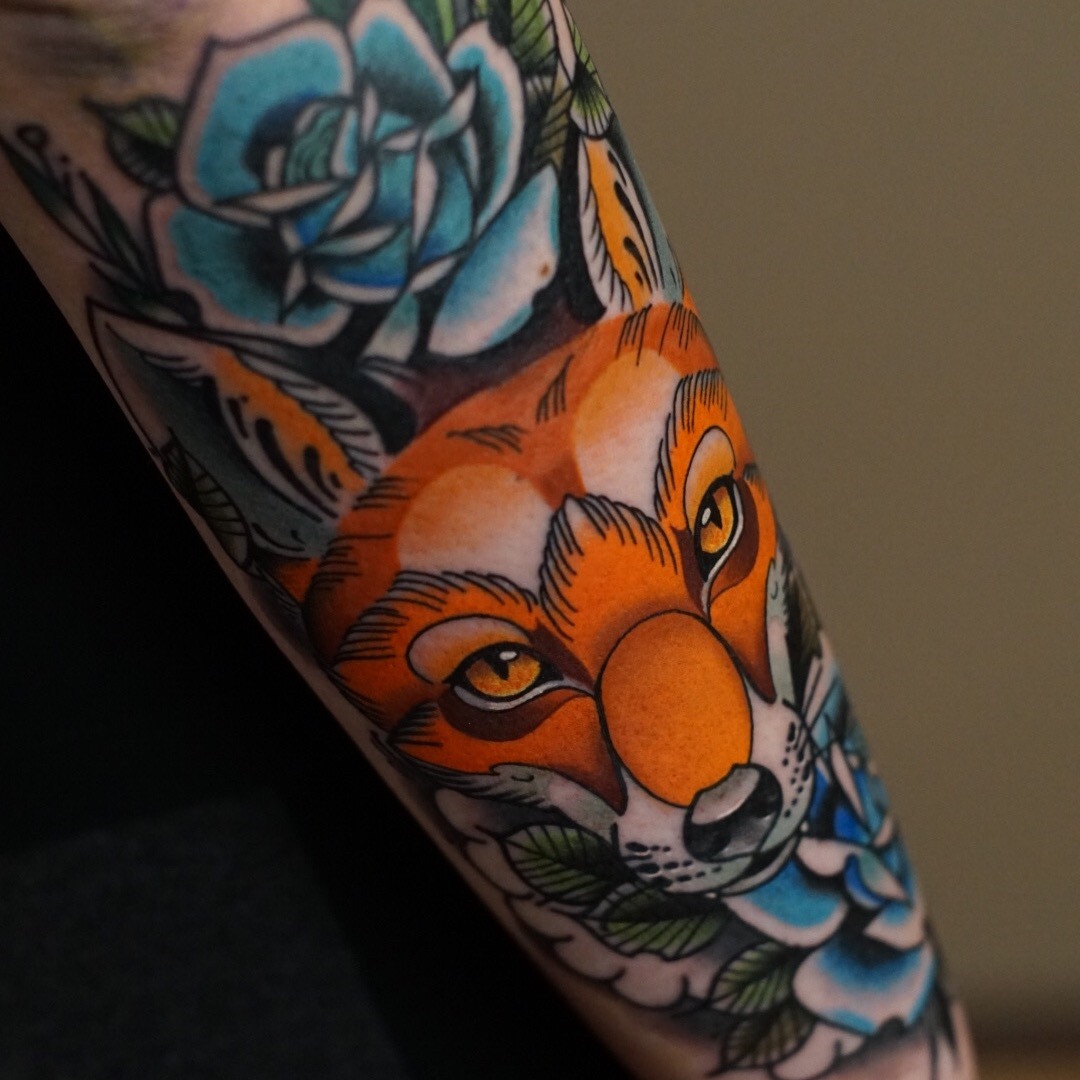 Tattoo by Zsombi Nagy
Tattoo by Zsombi Nagy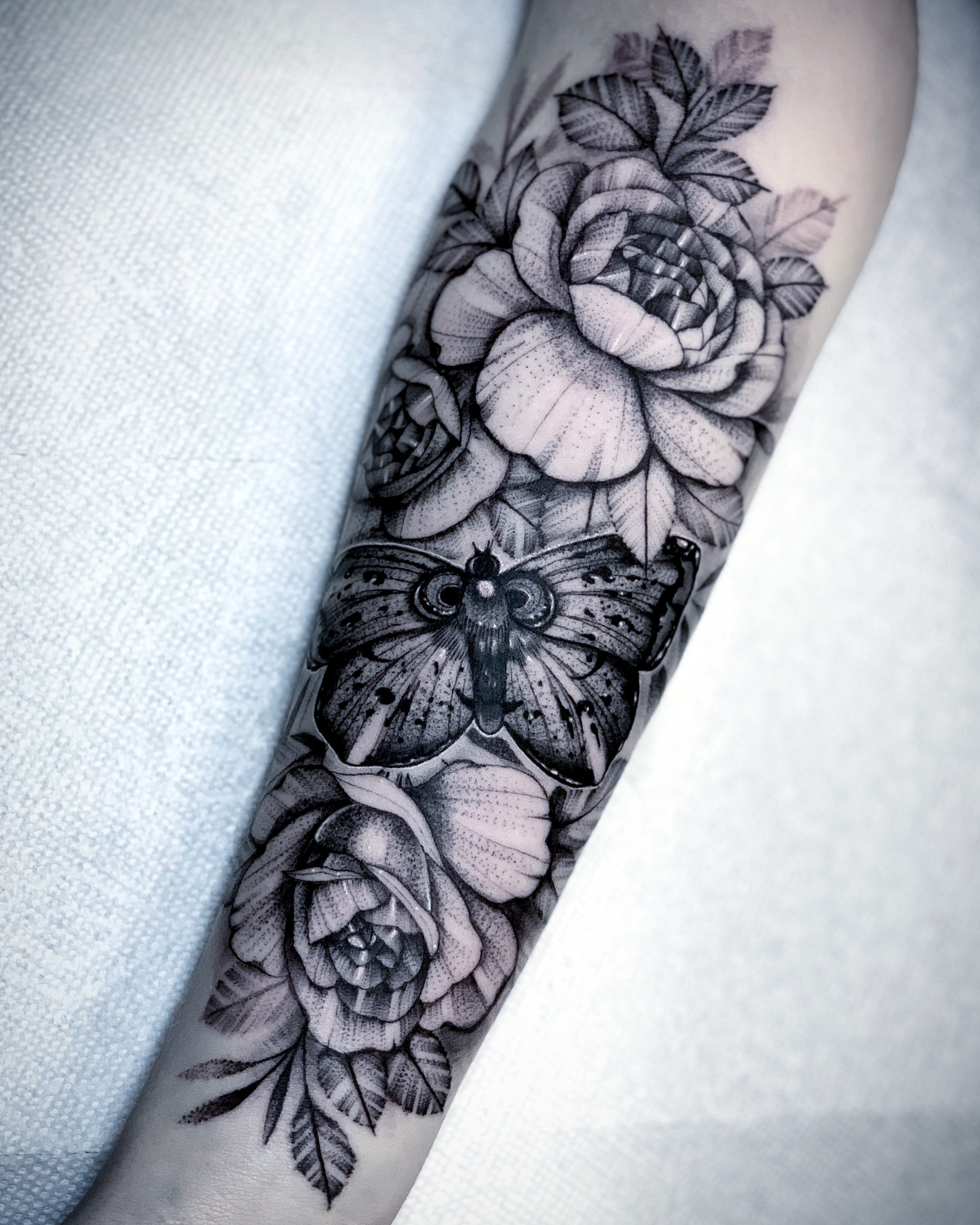 Tattoo by Hungry Heart Tattoos
Tattoo by Hungry Heart Tattoos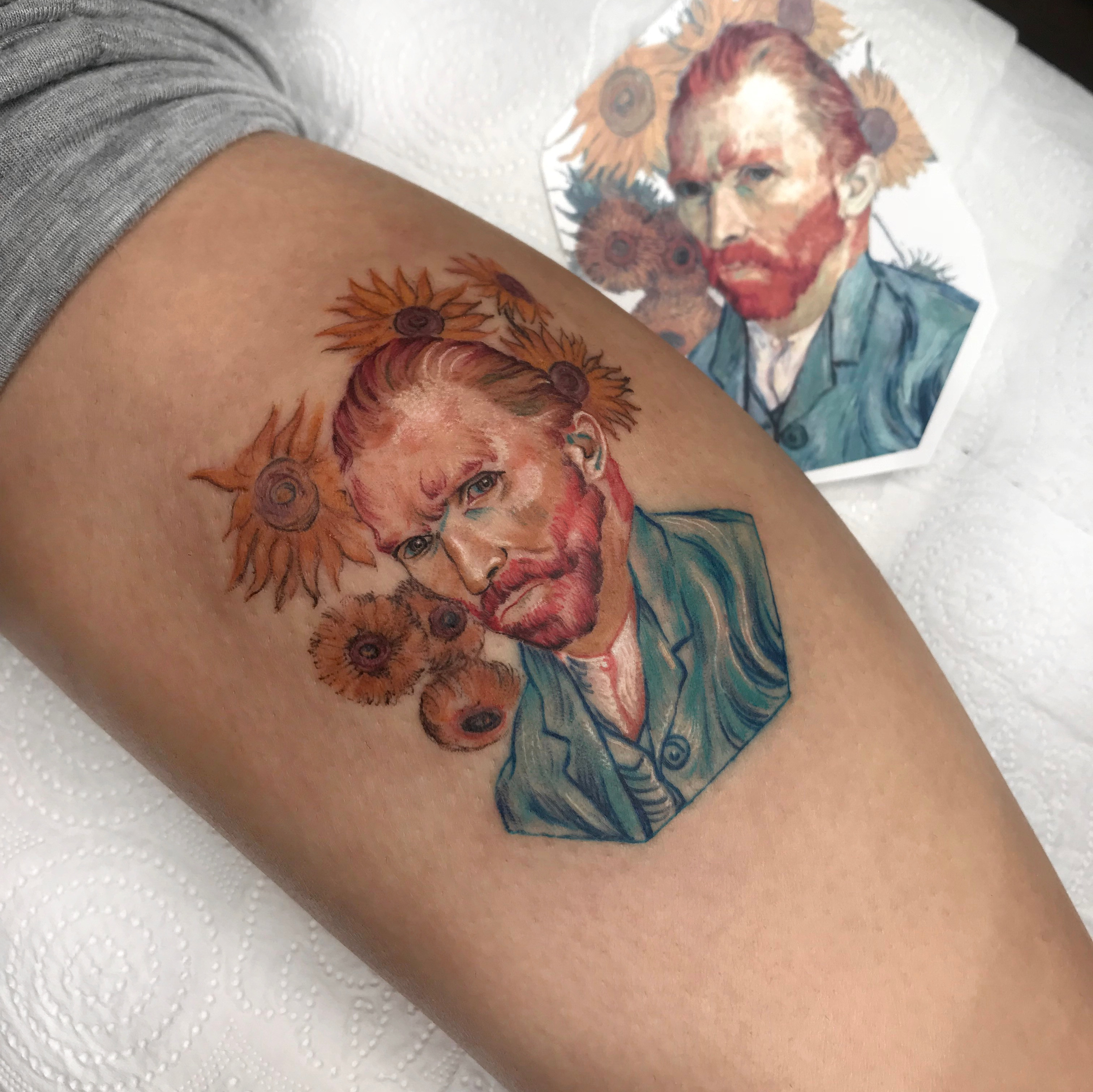 Van gogh tattoo by Ali Dundar
Van gogh tattoo by Ali Dundar
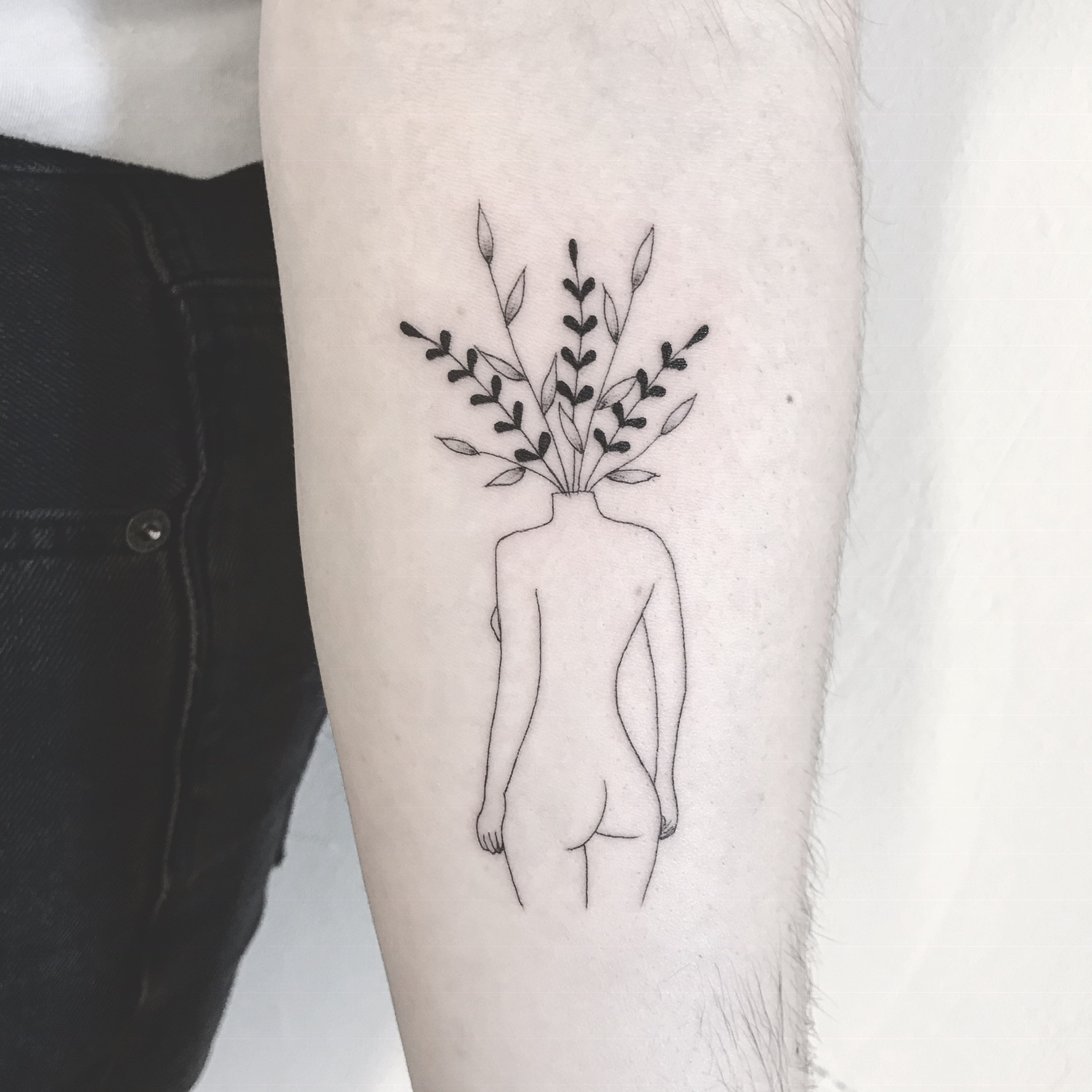 Tattoo by Emma Kristin
Tattoo by Emma Kristin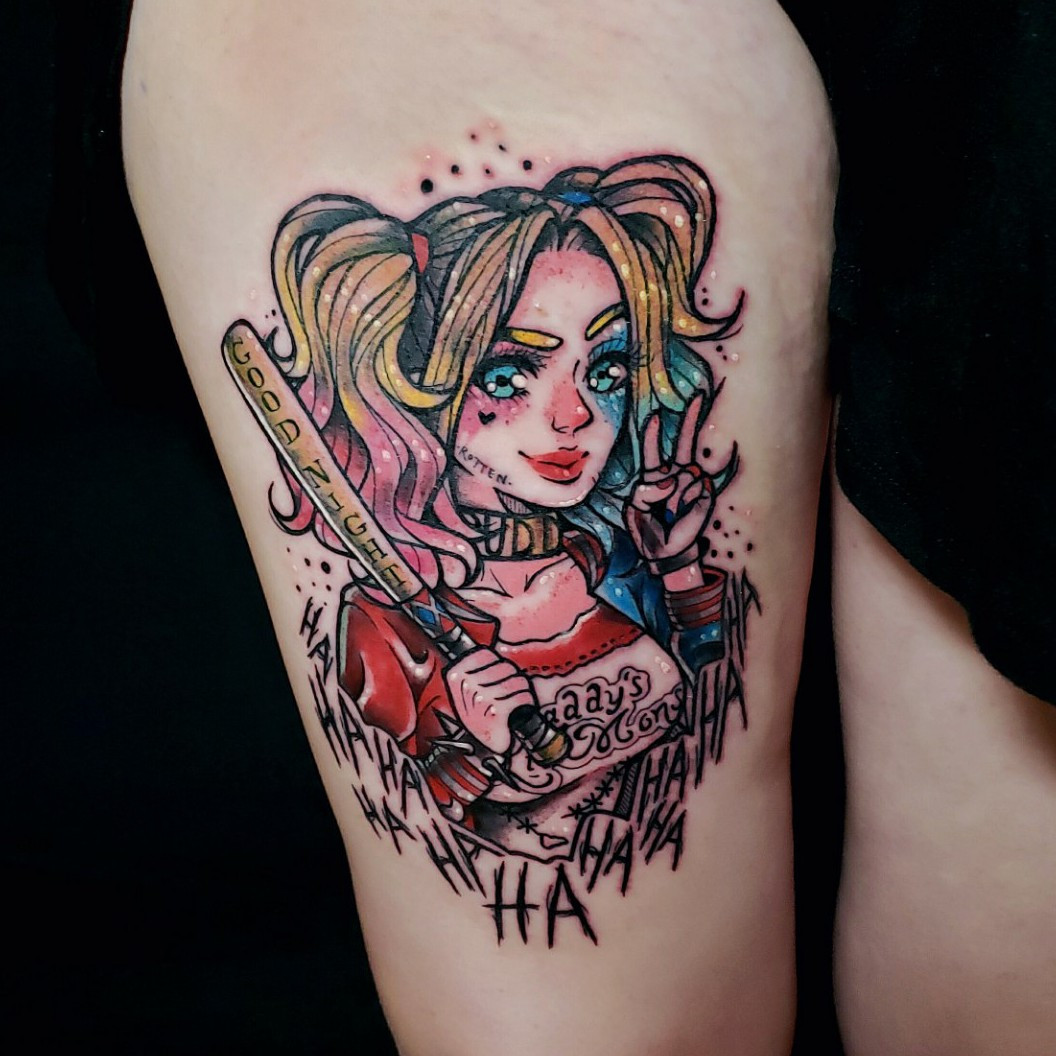 Harley Quinn in my style tattoo by Michelle Arrue
Harley Quinn in my style tattoo by Michelle Arrue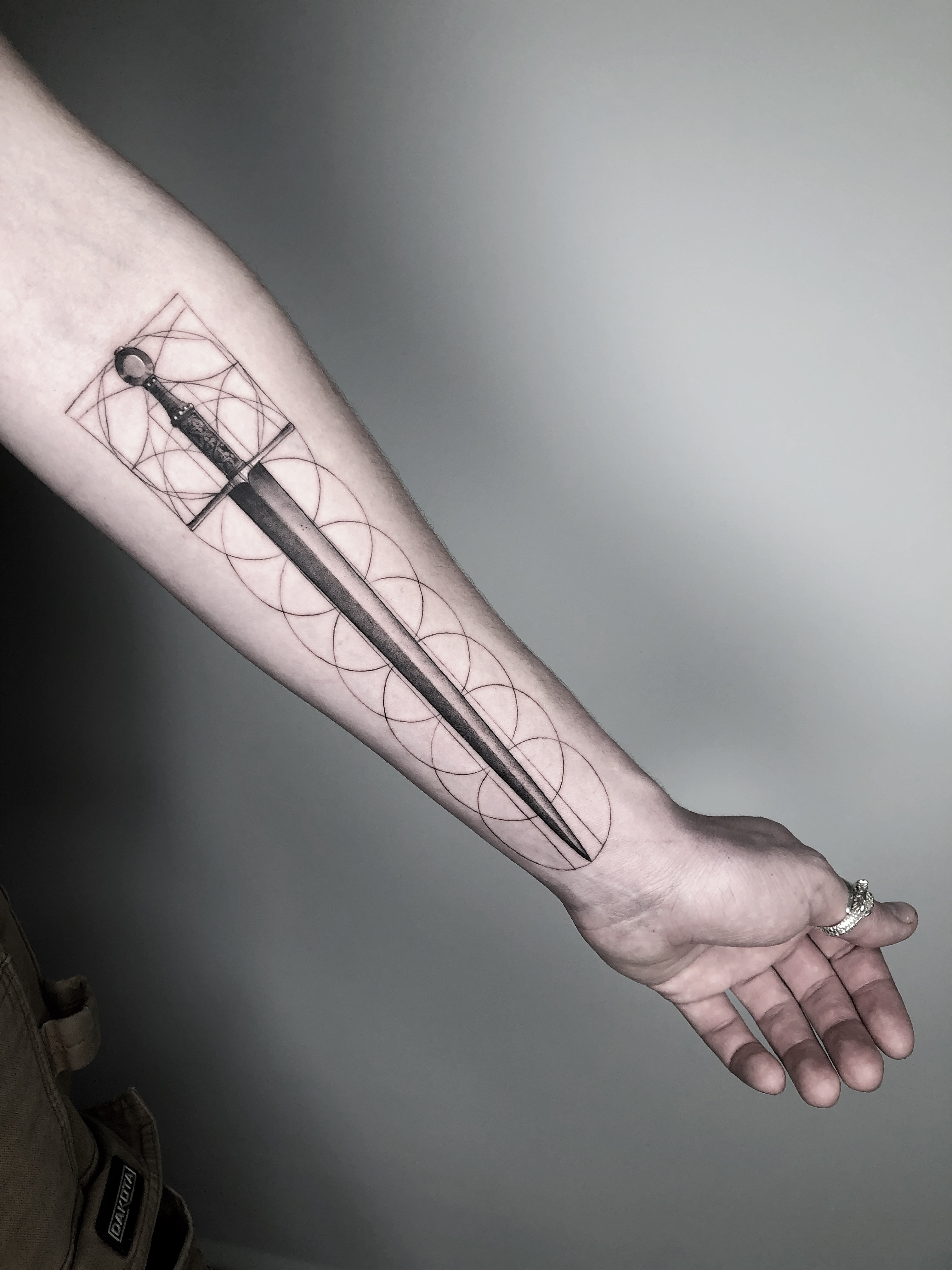 Tattoo by Natasha Hemera
Tattoo by Natasha Hemera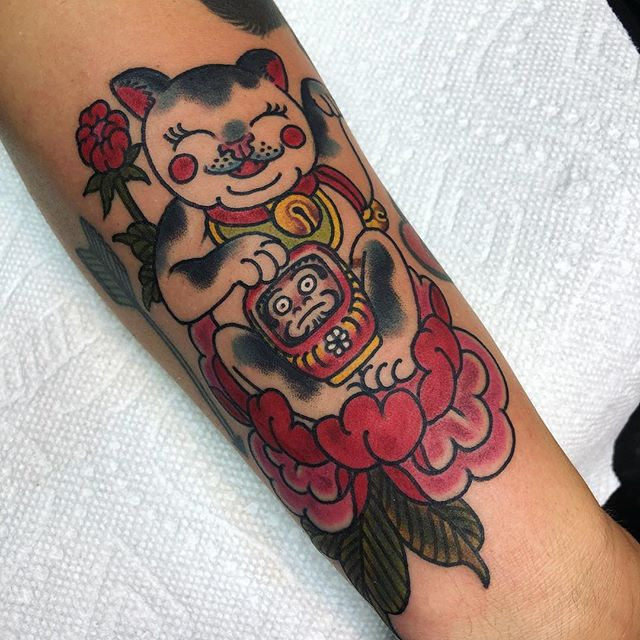 Tattoo by Rob Hamilton
Tattoo by Rob Hamilton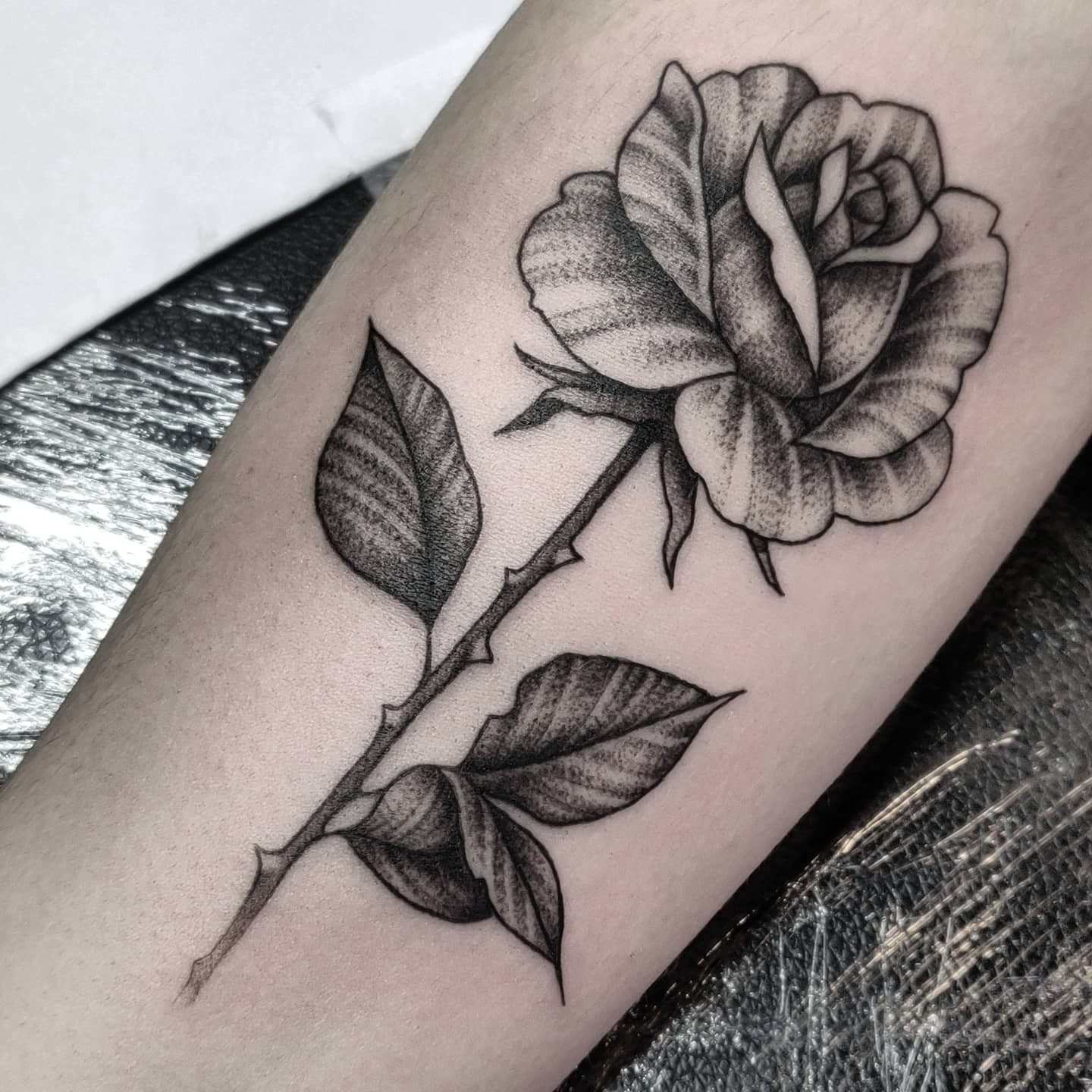 Rose tattoo by Virginia Massari
Rose tattoo by Virginia Massari Deathly hallows tattoo by Olie Silz One I did for her, another one for him. . Booking closed Doing new beautiful things for future. As usually I’ll be posting all my life updates here, so keep following. And thanks for all your love
Deathly hallows tattoo by Olie Silz One I did for her, another one for him. . Booking closed Doing new beautiful things for future. As usually I’ll be posting all my life updates here, so keep following. And thanks for all your love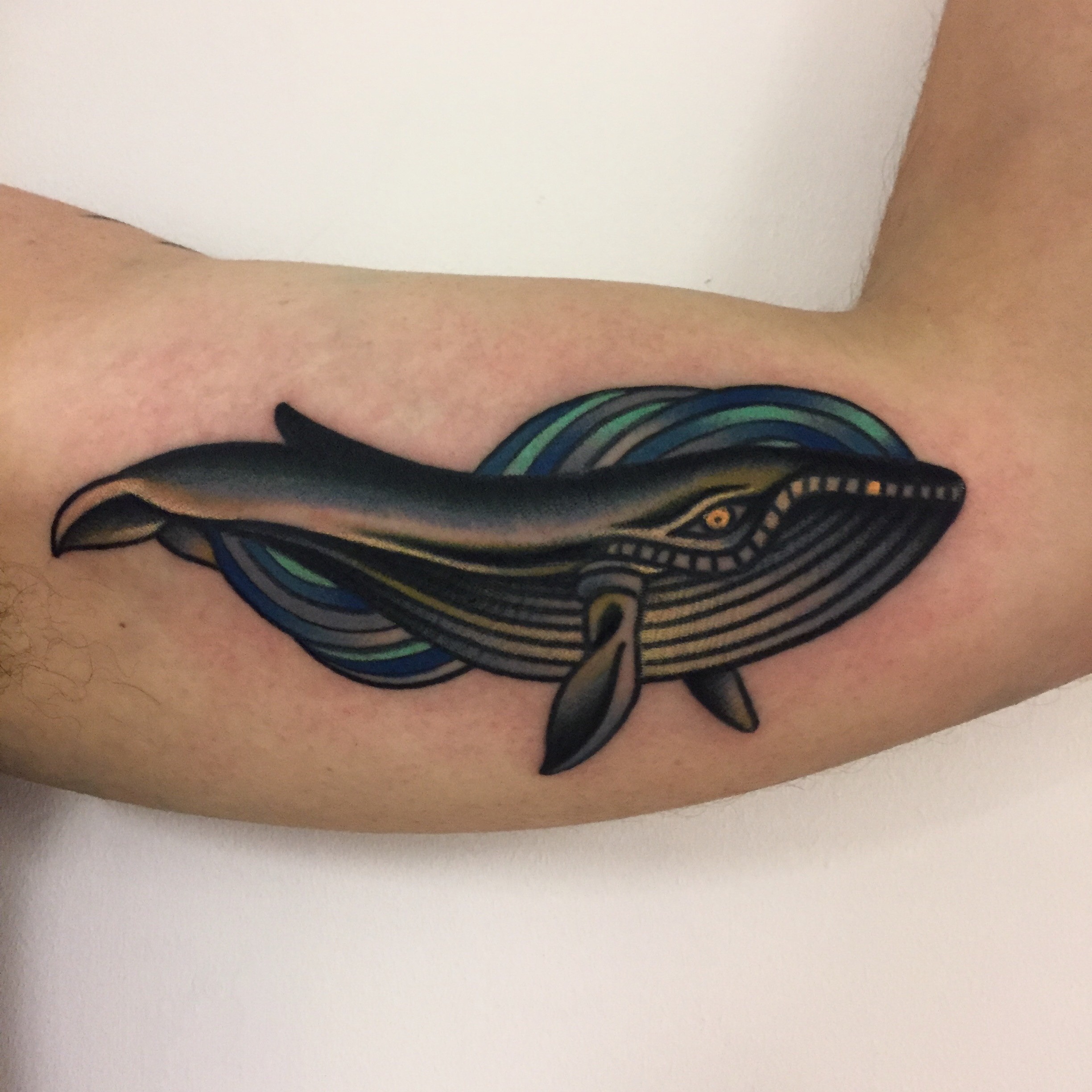 Whale tattoo by Lucas Iglesias
Whale tattoo by Lucas Iglesias